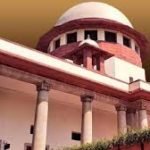The suit was filed against the mother’s elder son (Sandeep Gupta, defendant No. 1), his wife (Shaifali Gupta, defendant No. 2), and their two sons (Siddharth Gupta and Shantanu Gupta, defendants Nos. 3 and 4)2. Other family members (Shalini Gupta and Sankalp Gupta) and subsequent purchasers (Surya Prakash Mishra and Deepak Lalchandani, defendants Nos. 5 and 6) were also arrayed as defendants.
The suit sought partition, possession, declaration, mandatory & permanent injunction, and accounting of properties alleged to be family properties, purchased from the funds of the joint family or derived from the income of the joint family business4. The suit is essentially a family dispute between the mother and one son on one side, and the other son and his family on the other.
The family business, ‘Himalaya Tailors’, was jointly started by the two sons in 1982. Properties were purchased over time in the name of different family members, including some sold to defendant Nos. 5 and 6, which the plaintiffs alleged were void sales.
The main contesting defendants (including Shaifali Gupta) and the subsequent purchasers (defendants Nos. 5 and 6) sought to reject the plaint under Order VII Rule 11 CPC, primarily arguing that the suit was barred by the Benami Transaction (Prohibition) Act, 1988.
The court of first instance rejected the application under Order VII Rule 11 CPC on 25.02.2019, stating that the suit properties were Joint Hindu Family properties and the issue was to be adjudicated upon after evidence. This decision was upheld by the High Court, dismissing a revision petition.
Law Involved
Order VII Rule 11 of the Code of Civil Procedure, 1908 (CPC): This rule allows a court to reject a plaint in certain circumstances, including when the suit appears from the statement in the plaint to be barred by any law.
Benami Transaction (Prohibition) Act, 1988 (Benami Act): This Act prohibits benami transactions.
Section 4(1): Bars any suit, claim or action to enforce any right in respect of any property held benami against the person in whose name the property is held or against any other person claiming to be the real owner of such property.
Section 2(8) and 2(9): Define ‘benami property’ and ‘benami transaction’.
Section 2(9)(A) Exception (ii): An exception to the Benami Act’s bar, allowing properties held by a person in a fiduciary capacity or for the benefit of another person (e.g., properties purchased by a female Hindu and held by her as a full owner) to be considered.
Hindu Succession Act, 1956: The suit was considered essentially under this Act, with the properties being Hindu Joint Family properties and the relief claimed in the suit purely in respect of said properties.
Reasoning
- On Order VII Rule 11 CPC: The Supreme Court emphasised that an application under Order VII Rule 11 CPC must be decided solely on the basis of the pleadings and allegations in the plaint, not on the basis of the defence or evidence. The question is whether, based on the plaint alone, the suit is barred by law.
- On Benami Act applicability:
The plaintiffs specifically asserted that the properties were Joint Hindu Family properties or derived from the income of the joint family business.
The Court noted that properties purchased from the nucleus of a joint family may be in the exclusive name of some family members, but they fall under an exempted category as per Section 2(9)(A) Exception (ii) of the Benami Act. This means they are not considered benami for the purpose of the prohibition.
Therefore, the suit cannot be considered ex-facie barred by Section 4 of the Benami Act at the stage of rejecting the plaint811. Whether a property is benami or falls within the exception is a question of fact that requires evidence to be adduced.
The Court found that the defendants’ contentions, including the bar under Section 14 of the Benami Act, were not specifically pleaded or argued before the lower courts for rejection under Order VII Rule 11 CPC.
Furthermore, the Court noted that Shaifali Gupta (defendant No. 2), who preferred one of the Special Leave Petitions, had neither moved an application nor filed a revision challenging the order rejecting the plaint. The subsequent purchasers (defendants Nos. 5 and 6) also failed in the two courts below.
Holding
- The Supreme Court found no error in the decisions of the courts below to reject the application under Order VII Rule 11 CPC.
- The Court held that the plaint allegations do not, at the threshold, indicate the suit is barred by any provision of law. The defence and issues raised by the defendants are factual in nature and require evidence .
- The Court also noted that there was no miscarriage of justice to permit the parties to contest the suit on merits, where they have the right to frame necessary issues.
- Accordingly, the Special Leave Petitions filed by Smt. Shaifali Gupta and Deepak Lalchandani were dismissed.
Smt. Shaifali Gupta V. Smt. Vidya Devi Gupta And Others
Supreme Court: 2025 INSC 739: (DoJ 20-05-2025)






